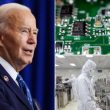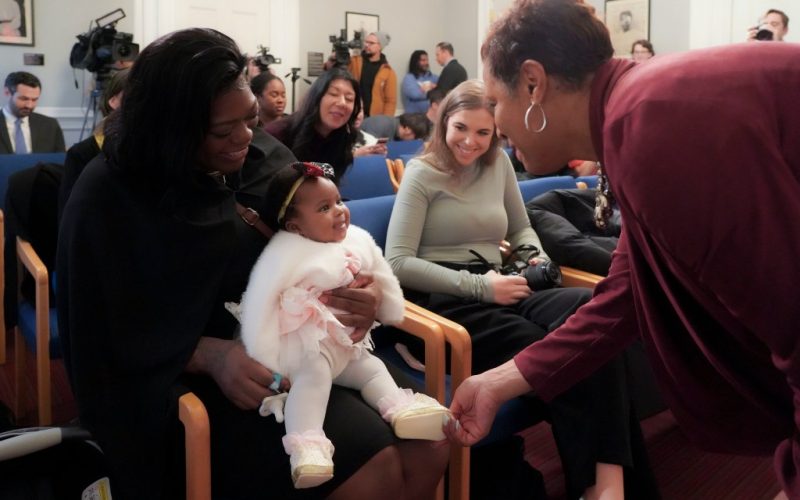As lawmakers and mothers, we know just how difficult family planning can be, even under the best of circumstances.
But for pregnant women experiencing housing insecurity, poverty, or domestic violence, the resulting stress can have serious consequences on their mental and physical health. They are less likely to receive quality, essential prenatal care — which can result in adverse health conditions during and after pregnancy.
That’s why our women-majority City Council recently announced a groundbreaking initiative to provide city funding for a guaranteed income program for expectant mothers facing housing insecurity — the first municipally-financed unconditional income program in city history.
Guaranteed income programs, which provide unconditional cash assistance to recipients, are an innovative, research-informed approach to help make stability a reality for those facing the greatest challenges and on the brink of falling into further vulnerability.
The Council is pioneering municipal support for guaranteed income programs by partnering with The Bridge Project to support 161 expectant mothers, demonstrating how this intervention can change lives.
The stabilizing impact of unconditional income support for mothers is critical to their health and the fight against child poverty. According to The Bridge Project, 90% of their participants in prior cohorts reported improvements in their mental health and stress levels after receiving just one payment. Nearly two-thirds of past participants who lived in transitional housing moved into permanent housing within nine months of their first payment.
This pilot program is critical because studies show that the first 1,000 days of a newborn’s life are paramount to their development and set a pivotal foundation for the rest of their lives. Infants born into homelessness begin to show signs of developmental delay and emotional problems by 18 months. They are more likely to experience adverse health conditions, have poor nutrition, and attend fewer medical appointments.
Currently, more than 1,400 babies are born into our city’s shelter system each year. A guaranteed income program that supports mothers experiencing or on the verge of homelessness can help prevent this outcome and ensure mothers and their children have the resources they need to live healthy, successful lives.
Mothers have complete discretion over how they use the funds — from rent and child care to groceries, diapers, and strollers — because the needs of families are unconditional and unique.
This Council consists of not just mothers, but also grandmothers, expectant mothers, and those supporting spouses through pregnancy. We know it’s crucial to prioritize the health of women, children, and families.
The Council has taken action to confront the maternal mortality public health emergency, passing laws to provide free doula care in underserved communities and establishing postpartum support groups to help mothers during and after pregnancy.
We committed $1 million to provide access to abortion and reproductive health care for those in need of financial assistance — the largest municipal funding commitment of any city in the nation.
In 2022, we also established CUNY Reconnect to help working-age New Yorkers who left school without their degrees to return to school and advance their earning potential. As of this fall, the program has helped more than 40,000 students re-enroll, the majority of whom are women and people of color.
These policies and investments ensure working-class women and people of color can access quality health care, growth opportunities, and the support they need to thrive, including if they choose to start a family.
We don’t just talk about supporting the working people of our city, we deliver with concrete solutions.
As policymakers, we recognized the potential of direct guaranteed income as an effective tool to advance this mission. It is also the type of program that can help other New Yorkers facing the most challenging circumstances — such as youth transitioning from foster care, shelter, and other systems — attain stability and opportunities for self-sufficiency and success.
There is much more our city must do to extend the impact of this work. Our first historic investment into a guaranteed income program can be a model for our city to extend life-changing assistance to other New Yorkers whom policies have historically and systematically overlooked.
These programs provide more than just flexibility and immediate assistance to those who receive them. They also offer hope, stability, and a foundation for economic mobility.
Our city should be investing more deeply in these types of evidence-based solutions that meet the needs of New Yorkers seeking pathways to success.
Adams is speaker of the New York City Council. Hudson is a co-chair of the Council’s Black, Latino, and Asian Caucus and represents parts of Brooklyn.








